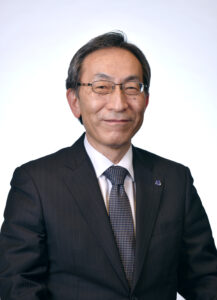68th MUMEI-JUKU (08/03/2024)
Theme: Drug Discovery in Japan
-Current Status and Challenges in Building a Venture Ecosystem in Japan–
Guest Speaker: Dr. Michihiko Wada, Project Professor, Keio University Hospital the Clinical and Translational Research Center
◆Opening Remarks by Dr. TAKEDA◆
Drug discovery is included in CETs (Critical and Emerging Technologies) in the U.S. and KETs (Key Enabling Technologies) in the EC (European Commission), and the launch of drug discovery and medical-related ventures is discussed.
So, how is Japan doing in this field? I have heard from some people that Japan is doing OK and is the third most advanced country in the world. However, according to Dr. Wada, the reality is not so. In fact, I am beginning to think that this may be true as well. Drug discovery and medical care are very important in that they are one of the ingredients for the development of the Japanese economy.
I believe that medical care is not limited to treatment, but is linked to the strength of Japan as a whole. I would like all of you attending today to study the issue of drug discovery and medical care, and by extension, CET. I would like you to think together with me so that we can further expand the scope of various activities linked to the world, not just the idea of an “all-Japan” approach.
◆Comments from Dr. Takeda◆
I have been wondering why Japan is behind in semiconductors and DX, or why Japan is falling behind in AI and QIS (Quantum Information Science), but after listening to Dr. Wada’s talk today and the comments from the participants, I feel that what Japan lacks today are three things: funds, people, and strategies.
What is important to ensure Japan’s prosperity is “the role of the government, its industrial policy, and the funds to be invested in it. For example, President Biden signed a series of three bills in 2021 and 2022: a bipartisan infrastructure bill, the CHIPS and Science bills, and a bill called the Inflation Reduction Act, or IRA. They are funded at about $1 trillion, $280 billion, and $369 billion, respectively. The U.S. has begun to implement a serious industrial policy, and similarly, the EU has begun to prepare the same industrial policy and funds.
The Japanese government’s AMED is a very good project, but unfortunately, the funding is too small compared to the US and Europe. We still need the Japanese government’s industrial policy and funds to back it up, and I would like to see companies participate in this trend. As for human resources, I have taught at universities in the U.S. and in Japan, and each has a different approach to human resource development. However, I believe that the one thing in common is that in order to create the next generation of leaders, people who are well versed in the actual workplace should be involved in human resource development. I would like Japanese universities to do their best in this regard as well.
As for “strategy,” we need people who can create a strategy for Japan. As you can see from Dr. Wada’s talk, people who can create strategies have started to appear in the U.S. companies in the area of drug discovery. I would like all of you who are participating today to think about strategy and make an effort to create a strategy.
The future of Japan is finally beginning to look bright, but I think the real work is yet to come. I urge you all to do your best.


